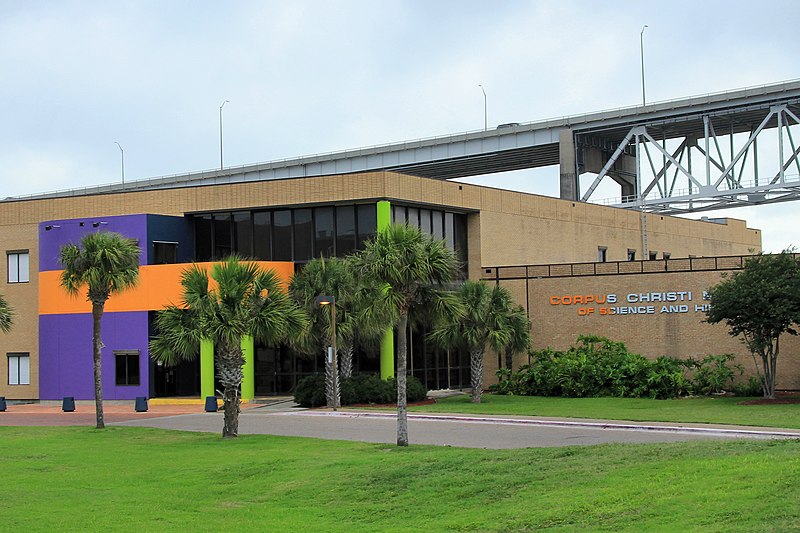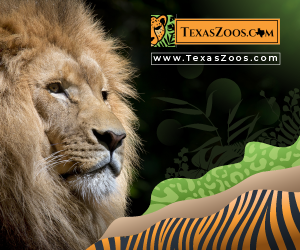A Journey from Dinosaurs to Rockets

Nestled in the heart of the Coastal Bend, the Corpus Christi Museum of Science and History offers a unique lens through which visitors can view the intricate tapestry of time. This esteemed institution deftly presents the rich heritage of the region, spanning from the era of dinosaurs to significant historical events that shaped the community. In its halls, the echoes of the past meet the innovations of the present, constructing an educational bridge that connects the prehistoric with the contemporary.
The museum’s collections and exhibits are meticulously curated to engage people of all ages in the exploration of natural history and scientific phenomena, while also celebrating the diverse cultural narratives intrinsic to South Texas. From fossilized remains that whisper secrets of ancient ecosystems to interactive displays that ignite curiosity about scientific progress, the museum encapsulates the evolution of both Earth’s history and human achievement.
By offering a multifaceted learning experience, the Corpus Christi Museum of Science and History plays a pivotal role in educating the public and fostering an appreciation for the enduring legacy of the Coastal Bend. It stands as a beacon of knowledge, spotlighting how the region’s storied past seamlessly weaves into the fabric of its promising future.
History of the Coastal Bend
The history of the Coastal Bend region is a tapestry of early settlement and diverse cultural heritage, reflected in the day-to-day lives, traditions, and artifacts from various historical periods.
Settlement and Development
The Coastal Bend of Texas, initially inhabited by indigenous peoples, experienced significant changes with European colonization. Spanish explorers, such as Alonso Álvarez de Pineda, first mapped the coastline in 1519. The region later saw the establishment of missions and ranchos, serving as a link between Mexico and the growing Texas frontier. By the 19th century, settlers expanded the local economy through agriculture, cattle ranching, and the development of port cities like Corpus Christi, which became pivotal in trade.
- Key Developments:
- 1519: Coastal mapping by Spanish explorer Alonso Álvarez de Pineda
- 1749: Founding of the first Spanish missions
- 1800s: Growth in agriculture and ranching
Cultural Heritage
The cultural heritage of the Coastal Bend is as rich as its history, marked by a blending of Native American, Spanish, Mexican, and Anglo-American influences. Festivals, food, language, and architecture in the region reflect this multicultural tapestry. The area is particularly known for its Tejano music, a fusion genre that emerged from these diverse cultural roots.
- Cultural Influences:
- Native American tribes, such as the Karankawa and Coahuiltecans
- Spanish colonial influence visible in mission architecture
- Tejano music, blending European folk and Mexican norteño genres
Exhibits of Natural History
The Corpus Christi Museum of Science and History invites guests to explore the natural history of the Coastal Bend through immersive exhibits. These displays offer insights into the region’s prehistoric life and diverse ecosystems.
Prehistoric Displays
The museum’s Prehistoric Displays beckon visitors to journey back in time. They feature well-preserved fossil specimens, ranging from ancient marine life to dinosaur remains. Highlights include a reconstructed skeleton of a Mosasaur, a marine dinosaur that swam the prehistoric seas covering what is now Texas. Additionally, interactive stations allow guests to engage with the prehistoric world through hands-on experiences.
Flora and Fauna
The Flora and Fauna section showcases the Coastal Bend’s rich biodiversity. Visitors can observe life-sized representations of local wildlife, including the endangered Whooping Crane and the ubiquitous Texas Horned Lizard. Botanical models and information panels highlight native plant species, emphasizing their role in local ecosystems. This subsection serves as a testament to the area’s ongoing natural history, from the past to the current day.
Scientific Endeavours
The Corpus Christi Museum of Science and History showcases the advancements in scientific knowledge, focusing on how these discoveries have shaped our understanding of the world and beyond. They emphasize real-world applications and the impact on future generations.
Space Exploration
At the museum, visitors can discover the contributions made in the field of space exploration. Exhibits include:
- A detailed timeline of space missions, highlighting key events such as the Apollo moon landings and recent Mars rover expeditions.
- Scale models of spacecrafts like the Space Shuttle and Saturn V rocket, offering a tangible sense of the engineering marvels.
Environmental Science
The museum also dedicates a significant portion to environmental science, shedding light on the fragile ecosystem of the Coastal Bend. Highlights feature:
- Interactive displays that demonstrate local conservation efforts and the importance of biodiversity.
- A comprehensive showcase of the area’s geological changes over millennia, using vivid dioramas and authentic fossil specimens.
Interactive Education
The Corpus Christi Museum of Science and History captivates visitors with hands-on exhibits and educational programs tailored for all ages, igniting curiosity through interactive learning experiences.
Family-Friendly Activities
The museum features a range of interactive exhibits designed to engage children and their families. Visitors can explore:
- Dino Dig: A mock excavation site where kids can unearth replica dinosaur bones.
- EcoLab: An exhibit that allows families to observe and interact with live animals native to the Texas Coastal Bend.
- Science Showdown: Daily presentations with thrilling experiments that make scientific principles accessible and fun.
Educational Programs
They offer structured educational programs that cater to a variety of learning levels:
- School Field Trips: Customized tours aligned with Texas Essential Knowledge and Skills (TEKS) standards.
- Summer Camps: Themed camps that immerse children in topics ranging from paleontology to robotics.
- Scout Programs: Activities designed to help scouts earn badges in areas such as geology and environmental science.
Museum Expansion and Future Plans
The Corpus Christi Museum of Science and History is undergoing significant expansion to enhance its offerings and accommodate a growing number of visitors. The key elements of the expansion include:
- Increased Exhibit Space: The museum plans to substantially increase its exhibit floor space. This will allow for larger and more diverse exhibits, including interactive and traveling displays that bring in artifacts and learning experiences from around the world.
- New Educational Facilities: A state-of-the-art educational center is in development. There, students and researchers can engage in hands-on learning with the latest technology. It will feature:
- Laboratory spaces
- Classrooms
- A lecture hall
- Community Outreach Programs: A series of new community outreach initiatives are being crafted to bring the museum’s resources to a wider audience. These programs are designed to:
- Enhance science and history education in local schools
- Provide learning opportunities for all ages
- Foster a deeper appreciation for the local heritage and environment
- Upgraded Visitor Amenities: Visitor amenities such as the cafe and gift shop will be upgraded for a more comfortable and engaging visitor experience.
The future plans aim to bridge the gap between the historical roots of the Coastal Bend and the advances of modern science. By doing so, the museum strengthens its role as a key educational and cultural institution in the region.




